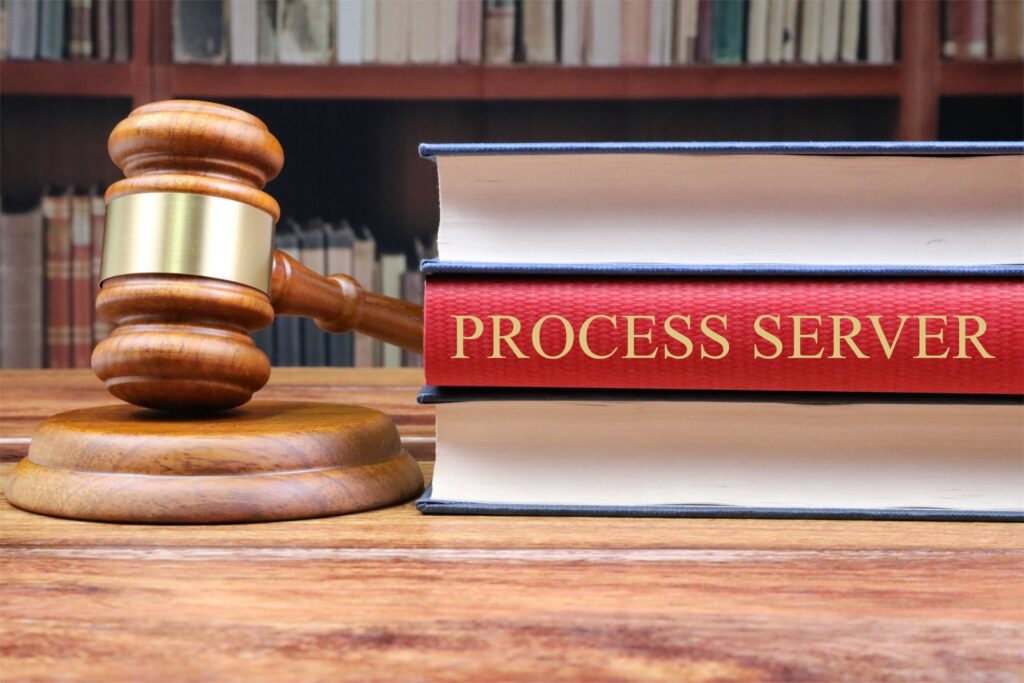Behind the Scenes: The Work of Process Servers in Executing Court Orders

In the intricate web of the legal system, process servers play a crucial role in ensuring that court orders are effectively executed. These unsung heroes operate behind the scenes, diligently navigating a complex set of tasks to deliver legal documents and summonses to individuals involved in legal proceedings. Their work is vital for maintaining due process and upholding the principles of justice. In this blog post, we will delve into the world of process servers, exploring their importance in the legal system, the qualifications required to become one, and the intricacies involved in executing court orders.
The Importance of Process Servers in the Legal System

Process servers act as impartial messengers of the court, ensuring that all parties involved in a legal case are made aware of their rights and responsibilities. They serve as a crucial link between the court and the individuals affected by legal proceedings. Without the services of these servers, the judicial system would struggle to function effectively, as individuals might remain ignorant of their legal obligations or fail to exercise their rights. Thus, they serve as enablers of justice, facilitating the smooth operation of the legal system.
The Legal Requirements and Qualifications for Becoming a Process Server
Becoming a process server requires more than just a desire to serve justice. To ensure the integrity and professionalism of the profession, there are specific legal requirements and qualifications that must be met.
These requirements may vary from jurisdiction to jurisdiction, but they generally include a minimum age limit, completion of specific training courses, and obtaining the necessary licenses or certifications. Additionally, some jurisdictions may require process servers to pass background checks to ensure they have no criminal record that could compromise their duties.
Step 1: Receiving and Reviewing Court Orders

The process of executing court orders begins with process servers receiving and carefully reviewing the documents they are tasked to deliver. This step is of utmost importance as it ensures that these servers understand the nature of the court order, its urgency, and any special instructions or conditions that need to be followed. Meticulous attention to detail is essential to ensure that the court order is delivered accurately and without delay.
Step 2: Planning and Strategizing the Delivery Process
Once the court order has been reviewed, process servers must plan and strategize the delivery process. They need to determine the best approach to locate and reach the individuals involved in the case. This often involves researching the whereabouts of the recipients, analyzing public records, and leveraging various resources to track them down. Effective planning is crucial to minimize delays and ensure a successful delivery, as well as to prioritize the safety and well-being of all parties involved.
Step 3: Locating and Tracking Down the Individuals Involved
The role of a process server also requires a knack for investigation and a keen eye for detail. Locating and tracking down individuals involved in legal proceedings can be a challenging task, particularly when they intentionally evade service or attempt to conceal their whereabouts. These servers employ a range of investigative techniques, including database searches, surveillance, and interviewing witnesses or neighbors to gather information that can lead to the successful delivery of court orders. Their persistence and resourcefulness are key factors in locating and serving individuals, ensuring that the legal process can proceed as intended.
Step 4: Delivering Court Orders with Professionalism and Accuracy

Once the individuals have been located, process servers must deliver court orders with the utmost professionalism and accuracy. They must adhere to strict guidelines regarding the mode of delivery, ensuring that the documents reach the intended recipients in a manner recognized by the law. Whether it is in person, through registered mail, or by alternative means permitted by the court, process servers must execute their duties with precision, ensuring that the court orders are served correctly and without bias.
Ensuring Compliance with Legal and Ethical Guidelines
Process servers operate within a framework of legal and ethical guidelines that must be strictly adhered to. They must serve court orders in a manner that upholds the principles of due process, ensuring that recipients are provided with the necessary information and opportunity to respond. Process servers must exercise fairness, impartiality, and respect throughout the delivery process, treating all parties involved with dignity and professionalism. They must also maintain confidentiality, safeguarding sensitive information and ensuring that the privacy rights of individuals are protected.
To ensure compliance with these guidelines, process servers often undergo continuous training and education. They stay updated on changes in laws and regulations governing their profession and seek to enhance their knowledge of legal processes and procedures. By staying informed and upholding high ethical standards, process servers contribute to the credibility and reliability of the legal system.
The Impact of Technology on the Work of Process Servers

Technology has had a significant impact on various industries, and the field of process serving is no exception. Advancements in communication, data access, and information sharing have transformed the way process servers carry out their duties. The use of electronic databases, online records, and digital tools has greatly improved the efficiency and effectiveness of locating individuals involved in legal proceedings. Process servers can now access vast amounts of information with just a few clicks, making their search efforts more targeted and streamlined.
Furthermore, technology has facilitated the electronic delivery of court orders, reducing the reliance on traditional paper-based methods. Electronic service of process, through methods such as email or secure online platforms, has gained traction in many jurisdictions, offering a faster and more convenient means of delivering court orders. However, it is important to note that the acceptance and legality of electronic service may vary depending on the jurisdiction and specific circumstances of the case.
In conclusion, process servers are essential players in the legal system, ensuring that court orders are executed efficiently and fairly. Their work involves a meticulous process of receiving, reviewing, planning, locating, and delivering court orders with professionalism and accuracy. These servers face various challenges in carrying out their duties, including resistance from recipients and potential confrontations.
They must navigate these obstacles while adhering to legal and ethical guidelines to uphold the integrity of the legal process. Technology has also had a significant impact on the work of process servers, enabling more efficient information access and electronic delivery of court orders. Through their dedication and commitment, they contribute to the effective functioning of the legal system and the principles of justice.




